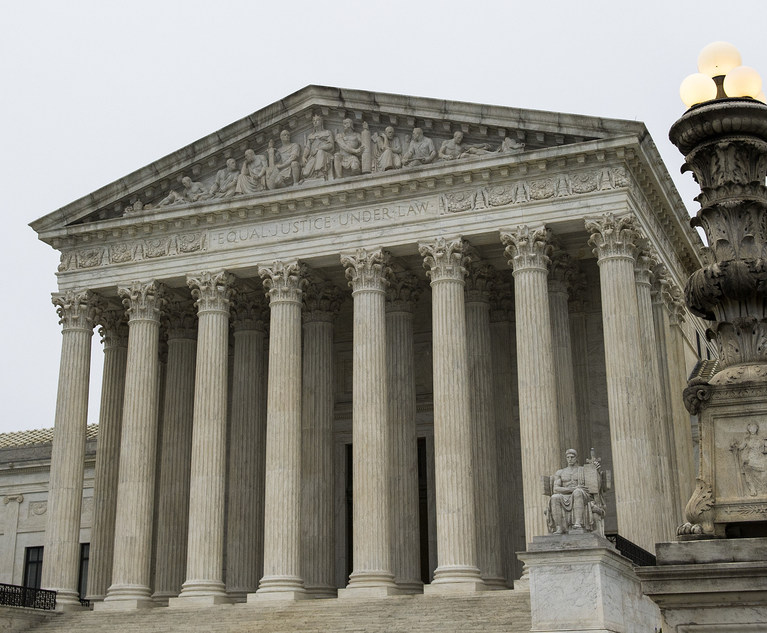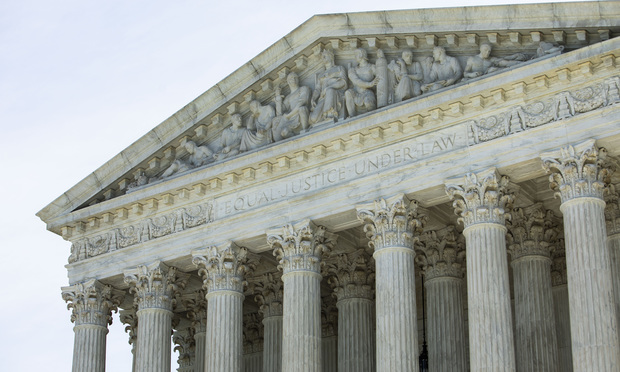Anthony Michael Sabino

July 12, 2022 | New York Law Journal
The FAA Keeps On Trucking: The Second Circuit and 'Bissonnette'In part one of a two-part series, the author discusses the recent Second Circuit decision in 'Bissonnette v. LePage Bakeries', where the court found that the plaintiffs did not come within the FAA's exception for arbitration.
By Anthony Michael Sabino
8 minute read

May 16, 2022 | New York Law Journal
The Force Majeure AwakensThis article provides a look at the roots of the force majeure doctrine, leading up to the recent Second Circuit decision 'JN Contemporary Art v. Phillips Auctioneers', where the court "remains steadfast to the basic maxim that a force majeure clause is only as efficacious as its exact text."
By Anthony Michael Sabino
9 minute read

February 02, 2022 | New York Law Journal
'Goldman Sachs', Part II: Aspirational Statements, Inflation-Maintenance and the SDNY on RemandPart One a two-part article began with a review of the fundamentals of reliance and "fraud on the market," and then set forth the high court's latest views of same, as elucidated in 'Arkansas Teacher'. Part Two, here, will exposit 'Goldman', and the trial court's application of that fresh guidance to the controversy at hand.
By Anthony Michael Sabino
9 minute read

February 01, 2022 | New York Law Journal
'Goldman Sachs', Part I: The Supreme Court, Aspirational Statements and Inflation-MaintenancePart One a two-part article begins with a review of the fundamentals of reliance and "fraud on the market," and then set forth the high court's latest views of same, as elucidated in 'Arkansas Teacher'. Part Two will then exposit 'Goldman', and the trial court's application of that fresh guidance to the controversy at hand.
By Anthony Michael Sabino
8 minute read

August 26, 2021 | New York Law Journal
The Supreme Court and Standing, Part II: 'Transunion'In the first installment of this two-part article on the Supreme Court's continuing evolution of standing, the author discussed the doctrine's foundational maxims, including 'Spokeo v. Robins', and then turned to the first of two fresh landmarks, 'California v. Texas'. Today's installment tackles 'TransUnion v. Ramirez', the second of these newest precedents, and the one some might argue (with good reason) is the more significant of the duo.
By Anthony Michael Sabino
9 minute read

August 19, 2021 | New York Law Journal
The Supreme Court and Standing, Part I: 'California v. Texas'Recent decisions from the Supreme Court have had significant ramifications for the continued evolution of the doctrine of standing. In this first installment of a two-part article, the author begins with a necessary revisiting of 'Spokeo', the lineal parent of these latest decisions, followed by an analysis of 'California v. Texas', and its somewhat unique features.
By Anthony Michael Sabino
8 minute read

July 06, 2021 | New York Law Journal
'Uber' Delivers on Loss Causation in Securities Fraud CasesA discussion of 'Irving Firemen's Relief & Retirement Fund v. Uber Technologies', which provides proof that while loss causation may be the last of the six elements essential to proving securities fraud, it is by no means the least important.
By Anthony Michael Sabino
8 minute read

March 05, 2021 | New York Law Journal
Working From Home, Income Taxes and the Supreme CourtWhether or not working from home is here to stay, the simple truth is that the phenomenon has disrupted longstanding norms of how Americans pay state income taxes.
By Anthony Michael Sabino
9 minute read

October 08, 2020 | New York Law Journal
'In re Tesla,' Tweets, and Securities FraudSocial media is like fire: beneficial when employed wisely, capable of great harm if wielded recklessly. The truth of the latter was recently proven by 'In re Tesla, Inc. Securities Litigation,' discussed here.
By Anthony Michael Sabino
9 minute read

August 05, 2020 | New York Law Journal
Supreme Court Clarifies Disgorgement in Securities Cases and Beyond"The denouement of Liu is its confirmation that disgorgement is a component of the equitable relief available to the SEC in enforcement cases, strictly constrained in its application, and undeniably subordinate to venerable axioms of equity jurisprudence."
By Anthony Michael Sabino
8 minute read
Trending Stories
- 1Call for Nominations: Elite Trial Lawyers 2025
- 2Senate Judiciary Dems Release Report on Supreme Court Ethics
- 3Senate Confirms Last 2 of Biden's California Judicial Nominees
- 4Morrison & Foerster Doles Out Year-End and Special Bonuses, Raises Base Compensation for Associates
- 5Tom Girardi to Surrender to Federal Authorities on Jan. 7
More from ALM
- Scan In Progress: Litigators Leverage AI to Screen Prospective Jurors 1 minute read
- Legal Speak at General Counsel Conference East 2024: Match Group's Katie Dugan & Herrick's Carol Goodman 1 minute read
- Legal Speak at General Counsel Conference East 2024: Eric Wall, Executive VP, Syllo 1 minute read



